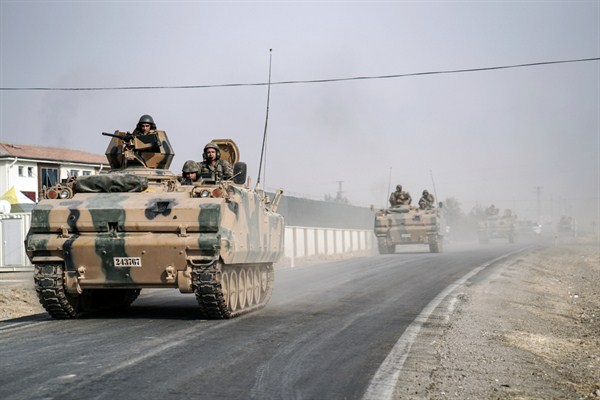In late August, Turkey launched operation Euphrates Shield, a cross-border military incursion into northern Syria to secure two primary goals: prevent the Kurdish People’s Protection Units, or YPG, from further expanding west of the Euphrates and push the self-proclaimed Islamic State away from the Turkish border. A little over a month in, the operation has certainly achieved these initial goals, but Turkey’s longer-term exit strategy, and whether the intervention will expand deeper into Syria, remain unclear.
Euphrates Shield has enough manpower to take small villages, but the number of Turkish troops and allied rebels is inadequate to take al-Bab, a larger, strategic city farther south of the Turkish border that the Islamic State has held since 2014. Turkey’s Syrian rebel allies are divided and have demonstrated poor tactics on the battlefield. Having amassed significant forces on the border, Turkey could expand the territory under the control of Euphrates Shield, north of Aleppo, if it makes the decision to risk more casualties. The fractures and serious manpower issues among rebel forces, however, raise broader questions about Turkish plans for the “day after” territory is taken from the Islamic State.
This suggests that Euphrates Shield will instead take the key border cities of Dabiq and Sawran from the Islamic State, and then focus on protecting the long frontline. Euphrates Shield has already proven successful at degrading the Islamic State and cutting its supply routes. But absent an increase in Turkish forces in Syria, anything more than that, especially a push for al-Bab, doesn’t seem likely.

